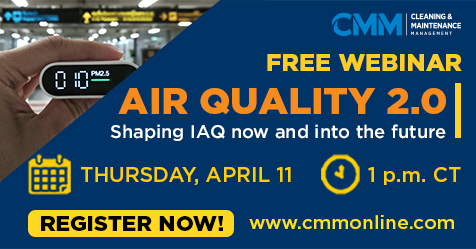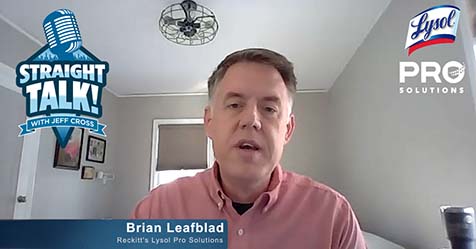There is opportunity and potential profit in the cleaning of hospitals, healthcare facilities and medical-related offices.
This includes such locations as doctor, dentist and other professional medical offices and buildings or other locations that require similar levels of service like laboratories, pharmacies, research and dialysis centers and medical and pharmaceutical manufacturers.
Larger facilities, including nursing homes, assisted living locations, medical centers and hospices, and closely related locations such as daycare and child development centers and health clubs all need to be cleaned, sanitized and disinfected.
These facilities are more difficult to clean than basic office buildings because of issues related to medical treatment, contamination and infection control.
Other concerns include hazardous chemicals, sharps like needles and glass and the collection and disposal of bio-medical waste.
While training on these issues is available, they should not be taken lightly due to the possibly of illness, death and liability.
What You Need To Know
Production rates will depend on what you are doing; office areas can be bid pretty much at the same rate as other office areas: 2,500 to 3,500 or more square feet per hour.
Exam and procedure rooms are slower, as exam tables need to be cleaned, disinfected and new protective barriers put in place.
There will also be a sharps box and a bio-waste container with which you may or may not have to deal.
Disposal of this type of waste is regulated and must be handled in a specific manner, which may include red bagging, weighing, tagging and storage in a special container.
This waste must be picked up by a certified disposal firm and cannot be placed in the normal trash dumpster.
A word of caution: There is a cost per pound for this disposal, so don’t include the cost in your bid without doing the proper research to see how it must be handled in your area and the actual costs for the service.
Exam rooms are normally bid in the 1,100 to 1,800 square feet per hour range depending on the services provided, the equipment and processes used and the complexity of room.
Operating suites and similar areas where blood and bodily fluids are commonly present are cleaned at much slower rates: From 400 to 1,000 square feet per hour.
In medical centers that have several operating rooms and are busy, cleaning teams of two or three people work collectively to reduce down time and keep the cases on schedule.
The more sophisticated and complex the operating suite, the longer the cleaning takes.
Operating room cleaning is categorized as a turnover or a terminal clean.
Turnover cleaning is faster and requires less detail, while terminal cleaning requires more time because everything in the room needs to be cleaned and disinfected — including the walls, the floor and the ceiling.
In the average operating suite, if there is such a thing, a normal turnover clean will take from 20 to 45 minutes; a terminal clean will take twice as long.
If there is a dirty case — one where the patient is highly infectious or the room becomes extremely soiled during his or her stay — the cleanup can take upwards of two hours, and exactly how long depends on what has to be done.
To attract and retain qualified staffs and to ensure profitability, add an extra 20 to 35 percent to your labor costs when bidding on medical facilities of any sort.
Risks And Rewards
The risks and rewards are greater in healthcare cleaning due to the nature of the work, which includes potential exposure to infectious materials, bio-medical waste disposal and increased risk of slip-and-fall injuries to cleaners, facility staffs and other building occupants.
Additional costs that you will incur when cleaning healthcare-related facilities include background checks, badging, uniforms and vaccinations such as hepatitis shots, which may cost $300 to $500 per employee.
It is important to discuss insurance coverage — personal health, company liability and other forms — with your agent before beginning this type of work to ensure that you have adequate protection and how it may impact your overhead costs.
Due to the risks involved and the technical nature of the work, there is no room for error:
- Strict supervision and management, along with intensive orientation and ongoing training, is required, as building security and patient confidentiality are major concerns in medical facilities.
- Documentation such as standard operating procedures (SOPs) to ensure consistency and checklists that help track and validate that work is completed, must be written, kept up-to-date and be followed by all applicable personnel.
- Inspections and scientific testing with the use of an adenosine triphosphate (ATP) meter, tribometer, gloss meter, particle counter or other scientific instruments may be performed to validate that the desired results of the cleaning processes are achieved.
- Multiple private and governmental agencies monitor, audit, inspect and approve the operation and funding of most medical facilities, so your operation must remain in compliance.
- Because patients in these locations are sick, uncomfortable and potentially dealing with life-threatening illnesses, guests and family members may be distracted, uneasy and under stress; workers must be aware of the anxiety and take it into consideration when working in medical facilities.
- You are dealing with doctors, nurses and other professionals who take their work, responsibilities and time seriously, so a high level of professionalism is both expected and required.
If you are unfamiliar with the healthcare market, do adequate research before bidding on any account.
Another recommendation is to receive adequate training and applicable certifications before jumping in.
Finally, start small by servicing independent doctors’ offices or small medical buildings and, over time, as your knowledge grows and your skills become perfected, work your way up to larger and more complex facilities and service offerings.


